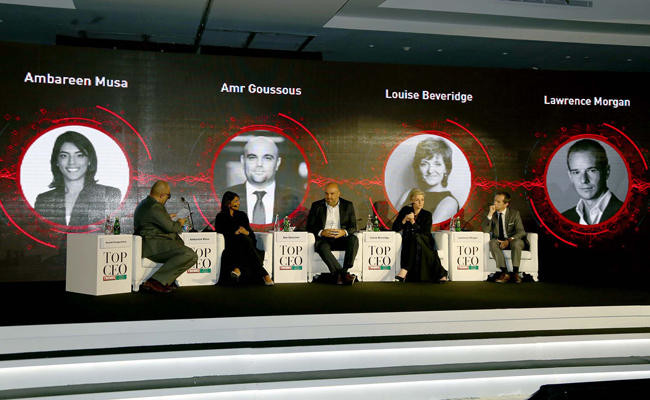JEDDAH: People are scrolling through 90 meters of web content every day — the same height as New York’s Statue of Liberty, according to Ari Kesisoglu, Facebook’s regional director in the Middle East, Turkey and Africa.
And by 2020, that number will likely double from the current four billion, as Internet use and reach continue to grow, Kesisoglu said at the Top CEO 2018 forum at the Bay La Sun Hotel in King Abdullah Economic City on Wednesday.
Kesisoglu said that since the beginning of human development until 2003, when the Internet began to boom, humanity had generated about five billion gigabytes of information. “Every 10 minutes, we create that amount of information now,” he said.
But he said that the brain’s processing power would be aided by the growth in the content we consume.
A study in 2001 found that the human brain could process a single thought in 0.3 of a second. The same study was repeated again in 2014: the human brain had developed to adapt to media changes and the Internet and could process a thought in 0.03 of a second.
“By 2020, the majority of the world will be connected to the Internet,” Kesisoglu said. “There is going to be a massive gap between content creation and our ability to consume content, and that gap will continue grow because of our brains and how powerful they are.”
Kesisoglu predicted that dependency on mobiles and the Internet would continue to grow — but this same growth in reliance would make people more vulnerable to the devices they depended on.
To emphasize his point, he told delegates to unlock their phones and hand them to the person on their left. “How does that feel?” he asked, as the audience struggled to smile in spite of their evident discomfort. “We cannot ignore how important mobiles are,” he said.
Quoting a recent World Economic Forum report, Kesisoglu said that as many as 5 million jobs would be lost to AI, robotics and nanotechnology.
But he said that there was a line of thought which suggested that these same technologies would ultimately lead to a reskilling of the workforce — half of which would be millennials by 2020, he said.















